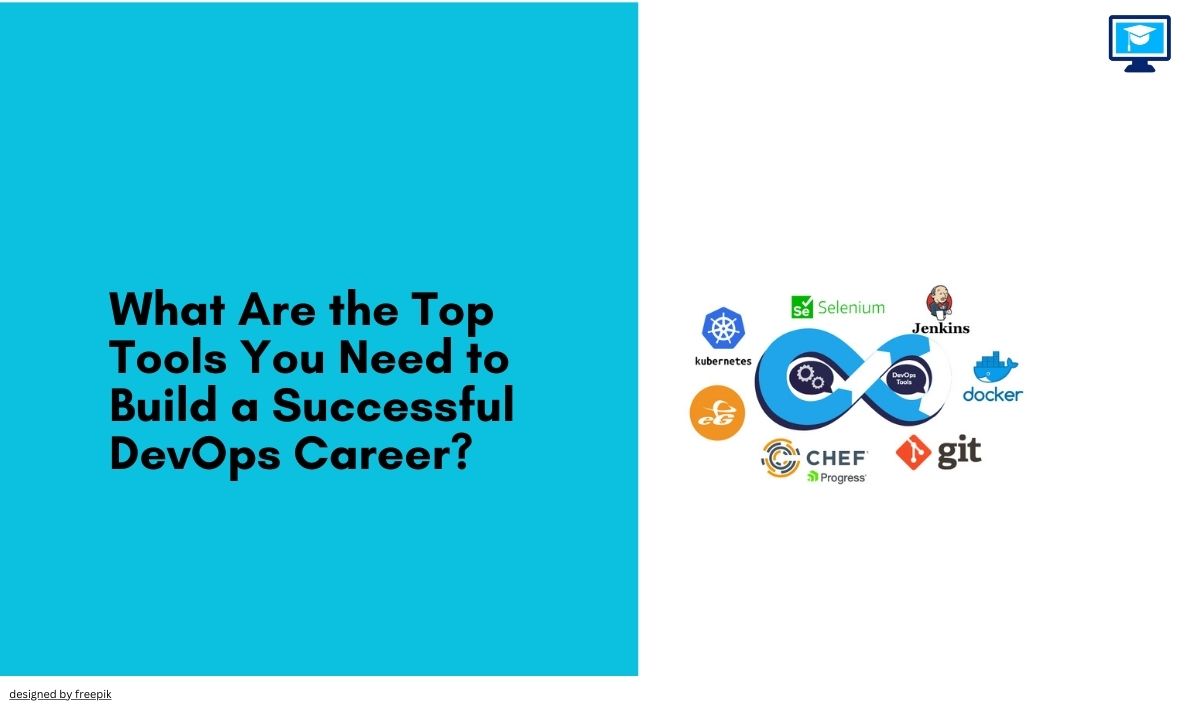DevOps is transforming how software is developed and deployed, but it relies on the right tools to deliver its benefits. Mastering these tools will set you apart as a skilled DevOps professional, from automating workflows to monitoring applications. This guide covers the essential tools every DevOps engineer must have in order to accelerate their career.
1. What Tools Do You Need for Source Code Management (SCM)?
Source code management lays the groundwork for collaboration and version control.
- Git: The industry-standard for tracking code changes and enabling teamwork.
- Platforms: GitHub, GitLab, and Bitbucket offer additional features like repository hosting and CI integration.
2. Why Are Continuous Integration/Continuous Deployment (CI/CD) Tools Important?
Automation through CI/CD tools helps to streamline development workflows.
- Jenkins: A go-to for automating build, test, and deployment processes.
- GitLab CI/CD: Fully integrated into GitLab for ease of use.
- ArgoCD: A must-have for Kubernetes-driven deployments using GitOps practices.
3. How Do Configuration Management Tools Help in DevOps?
Configuration management ensures consistency across environments by utilizing Infrastructure as Code (IaC)
- Terraform: A leader in provisioning infrastructure across cloud platforms.
- Ansible: Simplifies automation without requiring agents.
- Chef/Puppet: Automates server configurations and compliance.
4. Why Are Containers and Orchestration Tools Crucial?
Containers enable application portability, while orchestration optimizes deployment.
- Docker: The backbone of containerization, ensuring consistency from development to production.
- Kubernetes: Automates scaling, deployment, and management of containerized applications.
5. What Tools Are Used for Monitoring and Logging?
The key to reliability and uptime is knowing how the system is performing.
- Prometheus & Grafana: A popular duo for real-time monitoring and beautiful dashboards.
- ELK Stack (Elasticsearch, Logstash, Kibana): Centralized log management for faster troubleshooting.
- Datadog: Offers full-stack observability with advanced metrics and logs.
6. How Do Cloud Platforms Support DevOps?
Cloud platforms offer scalability and adaptability to contemporary applications.
- AWS: Known for comprehensive tools like CloudFormation and Lambda.
- Azure: Offers DevOps-native tools and services.
- Google Cloud Platform (GCP): Excels in Kubernetes and analytics integrations.
7. Why Are Collaboration Tools Essential for DevOps?
DevOps works well when teams work together and talk to each other.
- Jira: A favorite for agile project management and issue tracking.
- Slack: Supports team communication and integrates with DevOps tools for instant alerts.
8. How Do Security Tools Ensure DevOps Success?
Security must be a part of all development and operations processes.
- Vault: Protects sensitive information like API keys and passwords.
- Snyk: Scans code and containers for vulnerabilities, enabling DevSecOps.
9. What Role Does Testing Automation Play in DevOps?
The process of testing ensures the reliability of the application prior to deployment.
- Selenium: Automates browser testing for web applications.
- JUnit: Ideal for unit testing in Java environments.
10. Why Are Networking and Load Balancing Tools Important?
The utilization of traffic management ensures the availability of applications during periods of high load.
- Nginx: Balances traffic while serving as a web server.
- Istio: Provides service mesh capabilities for microservices networking.
Conclusion
To achieve a successful career in DevOps, it is imperative to master these tools, encompassing Git and Docker, as well as Kubernetes and Terraform. By adding these skills to your skillset, you’ll not only improve your efficiency, but also position yourself for growth in one of the most in-demand fields in IT.







